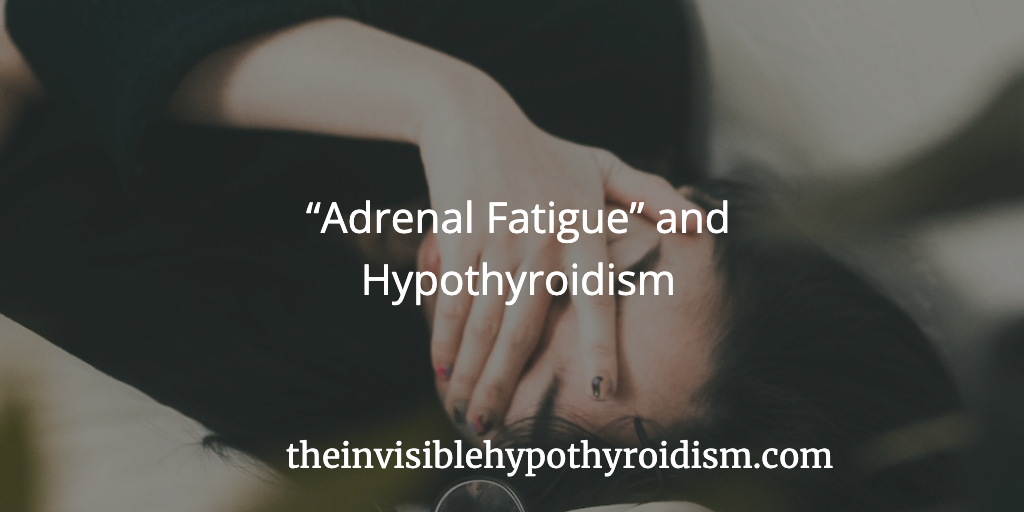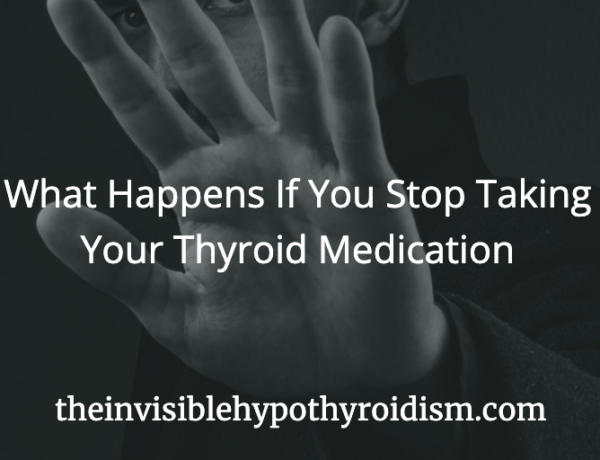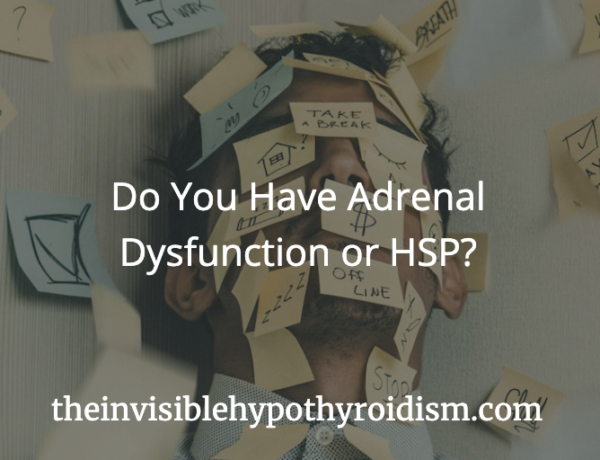Originally published on 17th February 2016 Last updated on 18th December 2023
“Adrenal fatigue” is a term we hear a lot in the thyroid community. This well spoken of condition concerning the adrenal glands has been debunked by the mainstream medical world on many occasions. So is it real or not?
I think the truth lies in the details.
What is “Adrenal Fatigue”?
The adrenal glands are part of the endocrine system, just like the thyroid.
The most popular concept we see of adrenal fatigue is that the adrenal glands, which sit atop the kidneys and are responsible for producing hormones in relation to stress, get so tired out from stress that they eventually stop producing enough (or any) hormones. One of which being cortisol. We are told that this is the cause of “adrenal fatigue”.
However, I find this to be an oversimplification and it’s actually quite a terrifying claim that scares many people who reach out to me, thinking they cannot stop or reverse “adrenal fatigue” easily.
What I think is more accurately described as “adrenal dysfunction”, is the cortisol slope that can be disrupted in a few different ways, or the ‘HPA Axis’. (“Adrenal Fatigue” may also be referred to as hypothalamic-pituitary axis dysfunction, as this is more accurate).
In Thyroid Pharmacist Izabella Wentz’s experience, this kind of adrenal dysfunction is present in as many as 90% of us with autoimmune hypothyroidism. [1]
The slope of cortisol, which we typically see at its highest first thing in the morning and gradually dropping down over the course of the day, can be disrupted when we are chronically stressed.
Chronic stress may alter this ideal slope of high cortisol in the morning and decreasing throughout the day, to:
- low cortisol all day
- high cortisol all day
- low cortisol in the morning and high cortisol at night
Our bodies can respond very interestingly to stress by causing an alteration in this cortisol slope, and this is what we refer to as adrenal dysfunction. I don’t subscribe to the idea of “adrenal fatigue” and the adrenals going kaput.
Symptoms of Adrenal Dysfunction:
- Struggling to fall asleep at night, or waking up a few hours after you do
- Feeling extremely tired in the morning, despite a lot of sleep
- Experiencing a mid-afternoon ‘slump’
- Feeling more emotional than usual
- Depression or anxiety
- Ongoing fatigue that affects your day to day life
- Feeling unable to tolerate stress
- Hot flashes or sweats
- Intensely craving salty or sugary food
- Dark circles under the eyes
- Dizziness
- Mental fog
- Weight gain
- Low libido
- Extreme tiredness after exercise
- Unable to fall asleep despite being tired
- Heart palpitations
- Feelings of hypoglycaemia (low blood sugar) though test results are normal
- Hair loss
- Irregular Menstrual Cycles
You may have also been on thyroid medication for a while and still feel no better. After all, adrenal dysfunction can be a big piece of our thyroid jigsaw puzzle.
In thyroid patients of all ages, many of them may also be labeled with psychiatric issues such as mental health conditions, when they are actually due to hormonal insufficiencies such as adrenal dysfunction. In one study, it was concluded that by correcting the underlying hormonal imbalance, many patients’ mental health improved, with some patients having a total reversal of psychiatric symptoms. [2]
The Adrenal Conditions That Mainstream Medicine Does Currently Recognise
There are two recognised conditions in conventional medicine, in association with extreme dysfunctioning of the adrenal glands: Addison’s, which is a long term condition where the adrenal glands do not produce enough cortisol, and Cushing’s, which is the opposite – where the adrenals produce dangerously high levels of the hormone.
Adrenal dysfunction may not be well-recognised in the mainstream medical world at the moment, but is in the more alternative medical world. This includes naturopathic, functional and lifestyle medicine. It is strongly felt in these circles that adrenal dysfunction (that is: an alteration in this natural cortisol slope) can cause symptoms and issues, though the cortisol levels are not as extremely affected as to the extent of Cushing’s or Addison’s.
How Do You Test For Adrenal Issues?
A 24 hour saliva test, testing your cortisol levels at four key points of the day, to find out if you have adrenal dysfunction, is recommended. If your doctor won’t run this, you can order it yourself and complete it at home, here.
Most mainstream doctors will only test it with a one time urine or blood sample, which is not as accurate as checking four saliva samples. Four samples taken over a 24-hour day show how your rhythm of cortisol production is working and whether you have that slope we talk about. It should be highest in the morning, tailing off throughout the day. Only four saliva samples taken in one day will tell you this accurately.
My Experience With Adrenal Issues: Half The Problem
I arranged for a saliva test, privately (a 24-hour, 4-point saliva test), to check for adrenal dysfunction in myself.
When I received the results, they showed that my cortisol was elevated 24-hours a day, indicating adrenal dysfunction and a cause for many of my ongoing symptoms; mainly fatigue.
Related Post: How I Solved My Adrenal Fatigue
“How Do I Fix Adrenal Dysfunction?”
Since stress is the cause, the simple answer to calming our adrenal glands and seeing cortisol return back to that expected, healthy slope, is to find ways to decrease stress, but it’s important to understand that stress can come in many forms.
I’m not just talking about a stressful job, deadlines, financial stress or parenting young children. It also includes not getting enough sleep / rest on a regular basis, blood sugar imbalances (often caused by a high sugar / carb diet), over exercising, yo-yo dieting / restricting calories, ongoing family arguments and having no downtime.
Lifestyle changes are usually made to address stress, but it’s very much individual to each person, as we need to look at what are our stressors. Prioritising sleep and rest, time to wind down and do activities such as reading, crafting, walking, yoga, baths or essentially anything that lowers your stress levels and promotes those feel good chemicals and hormones, is key.
Some people may need to reassess their work situation, create and maintain boundaries with friends and family around commitments, arguments and expectations, for example. Some may even need to reduce time spent with certain people who contribute to stress levels. If not stop seeing these people completely.
Ensuring that low thyroid hormone levels are corrected so that they are optimised can be important, as well as investigating possible food sensitivities which may be contributing. Eating gluten and consuming caffeine and alcohol were factors in my adrenal dysfunction.
You may wish to consult a practitioner who recognises adrenal dysfunction, such as functional doctor or naturopathic doctor.
You may share your comments or questions below.
You can click on the hyperlinks in the above post to learn more and see references to information given.
References:
[1] https://thyroidpharmacist.com/articles/pregnancy-announcement/
[2] https://www.ncbi.nlm.nih.gov/pubmed/16399913





